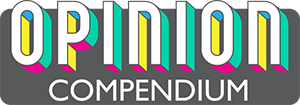Choose the Best Survey
Not all surveys are the same. There are differences between them. Each one is made for a specific situation. Use the wrong one, and you will not get the best results possible. There are advantages and disadvantages to them as well, neither are perfect.
Questionnaires
Questionnaires are the first survey type created. A list of questions will be listed and given out. The items can be multiple choice or short answer. There are two methods of how these are given. One is a mail survey. These will be sent out to the participant, and then they have to return it. Group administered questionnaires are done by inviting all the participants to come and take it. This way, if there is any confusion, someone is there to help. Household drop-offs is a mix. It doesn’t have to be a house. It could be a business. They bring the questionnaire to you, and then you send it back.
Questionnaire Advantages
Questionnaires are cheaper. They can be mailed out, meaning there are fewer people to pay to accomplish it. The participant is responsible for returning the results. It is hard to estimate how many will take the time to do it, instead of throwing it in the trash. Sending out more than you need is essential. The questions asked are often close ended since follow up questions are difficult. There is not a way to clarify answers. Market and consumer research are ideal areas that questionnaires have been proven to work well.
Interviews
Interviews are another way to complete a survey. In this situation, questions are given verbally, and responses are recorded. There are two ways this can be done, in person or over the phone. Each has benefits. In-person, the interviewer is asking the questions. They can record not only the verbal response but also what they observe. Telephone interviews are very popular. Anyone who has a phone has been subject to one of these calls. They are similar in that you will be responding to someone asking you questions. With phone surveys, they usually have a strict script. There will be fewer follow up questions, and they can’t see your body language.
Interview Advantages
Being able to read someone’s reaction can be just all telling as they answer they give. Interviewers are trained so that they can read people and know how to probe the participants. Follow up questions make the difference. Understanding the answer is just as crucial as getting the answer. Interviews do cost more to put on than questionnaires. From start to finish, they take more time. Because of these two things, they are not as popular. Phone interviews may be slightly easier to accomplish but will require more resources. A survey that has to do with opinions and beliefs are executed better as an interview than a questionaire.
Each survey type has its ideal time to be used. Consider the advantages and disadvantages in each before setting up your next survey.

